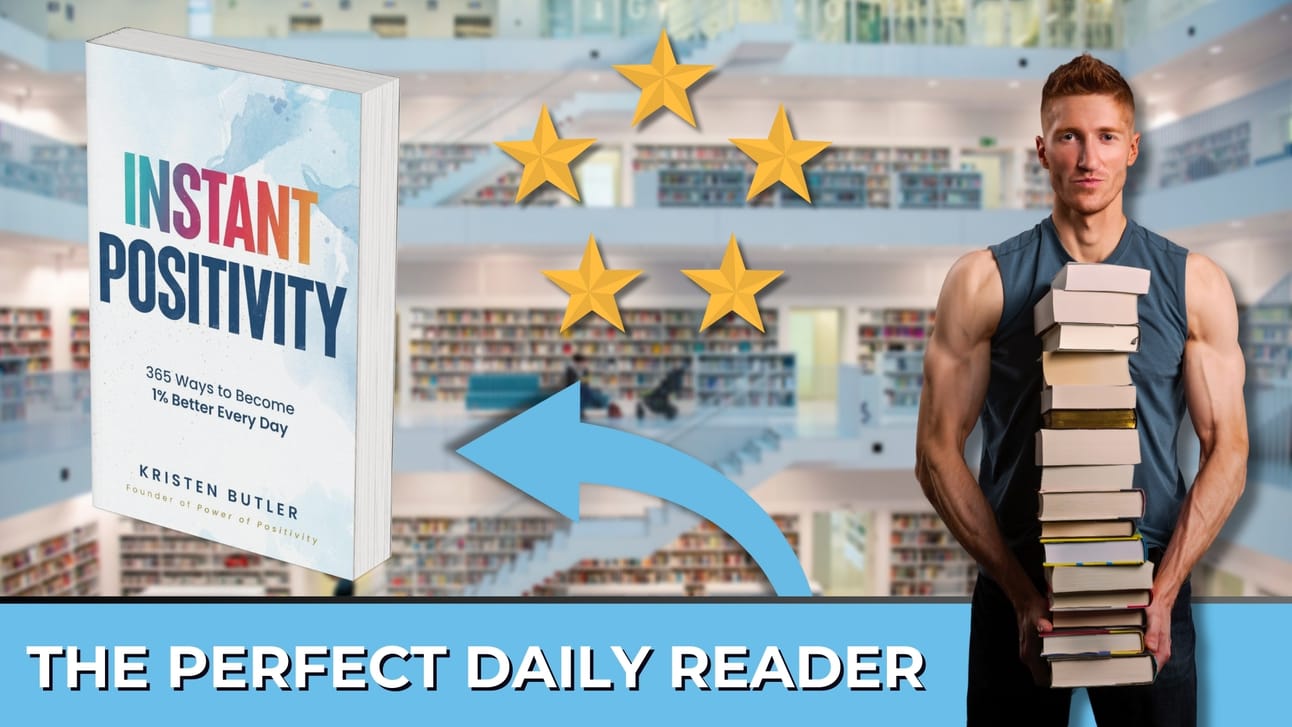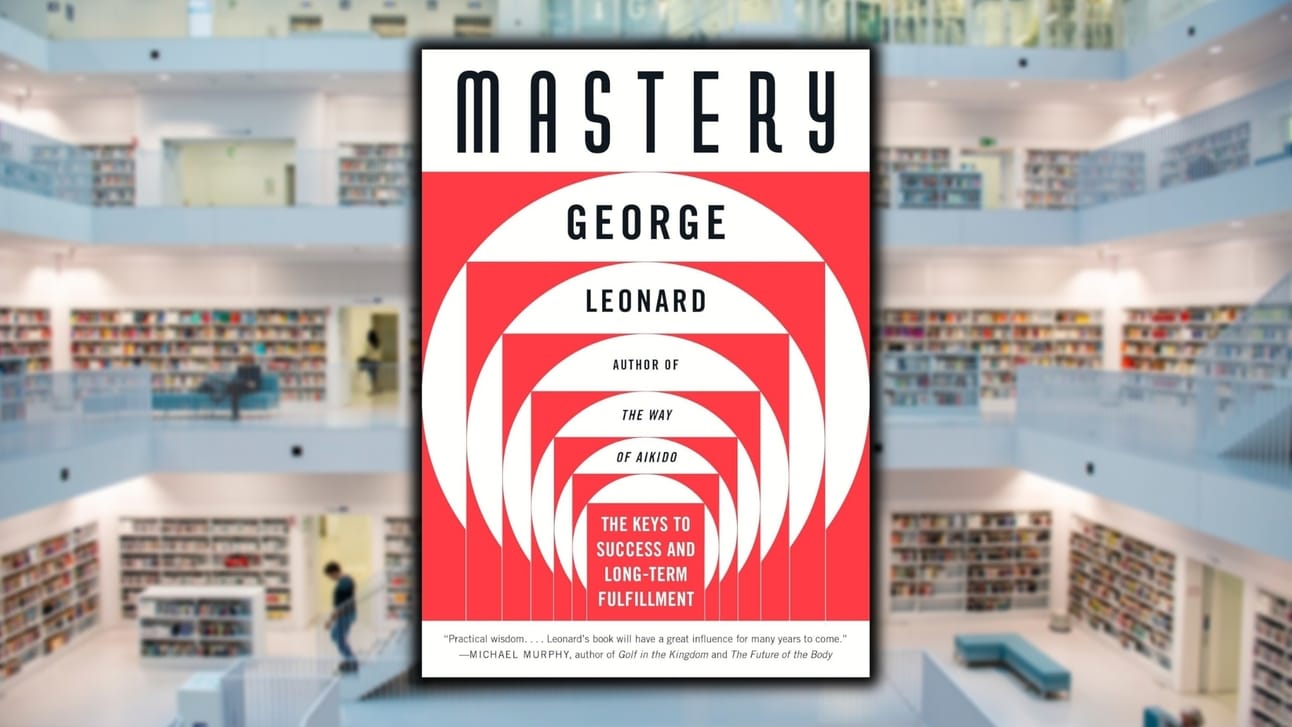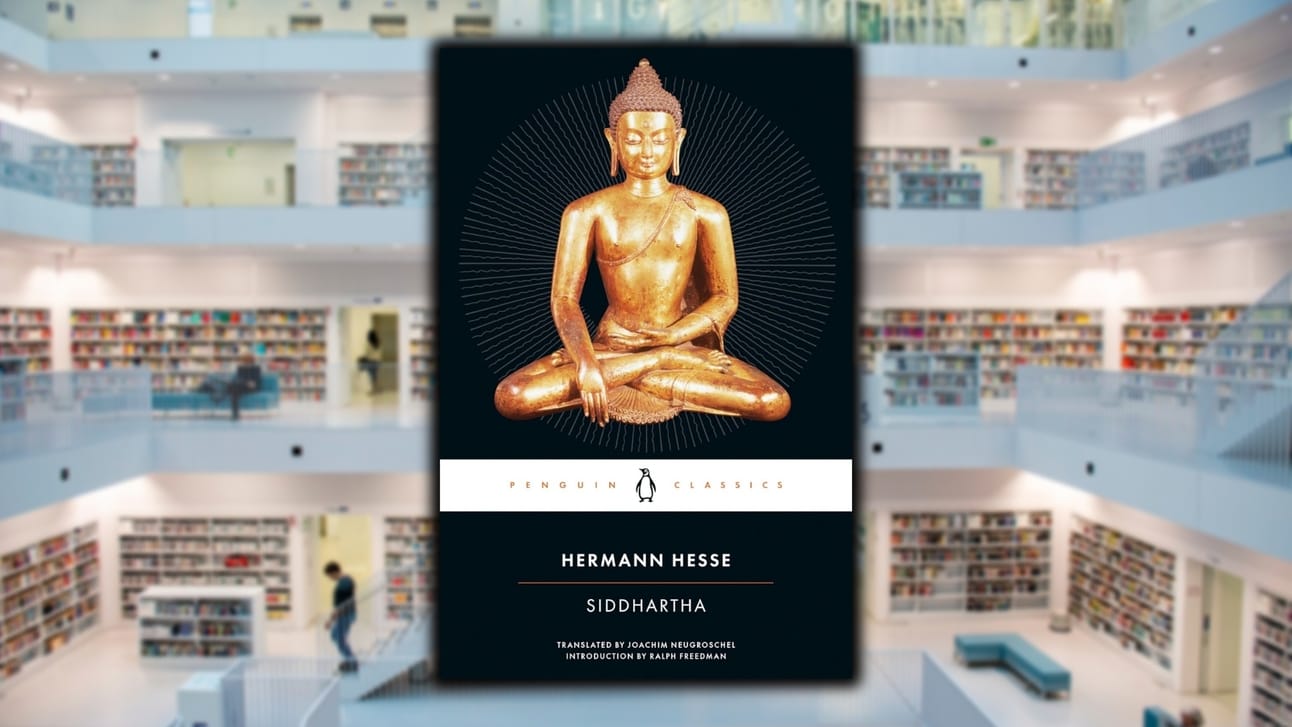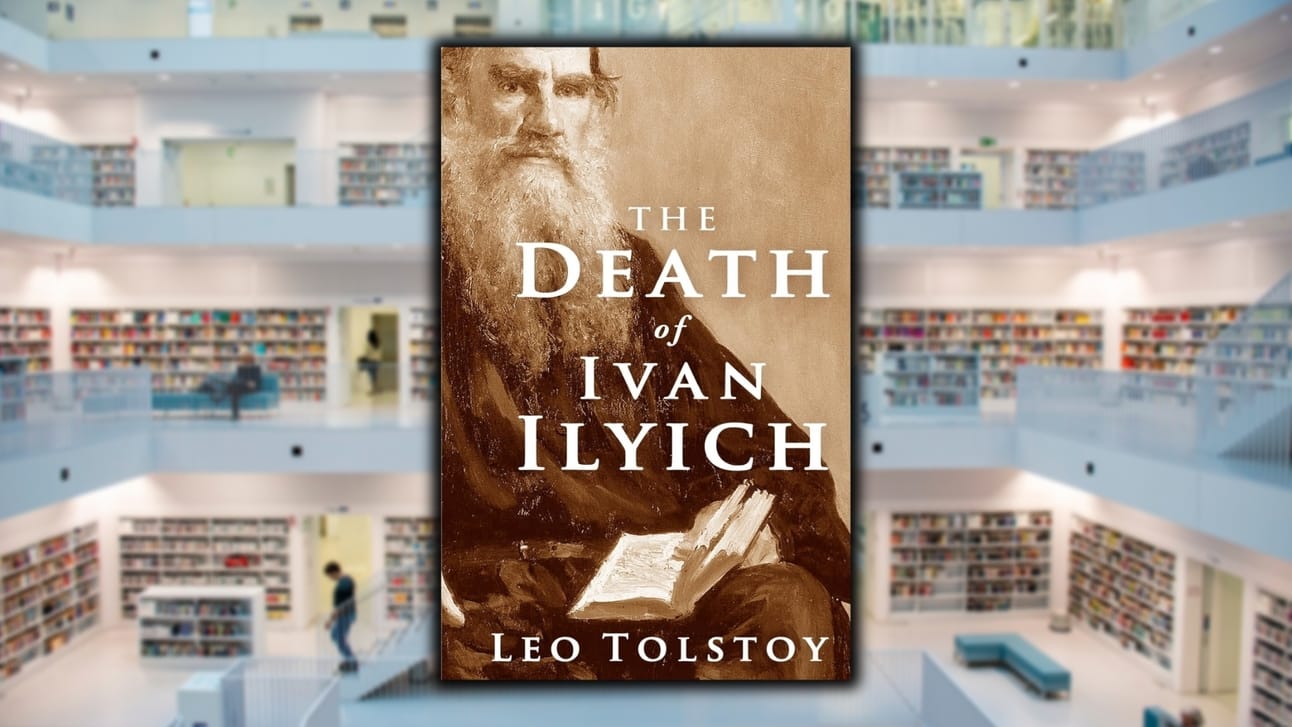You’ve probably read books before that take 400+ pages to say…well, anything at all.
These 10 books, however, pack so much “power-per-page” it’s just incredible.
The first five changed my life forever (I can tell you exactly where I was when I first read them), and the 8th book is probably one of the most underrated and tragically ignored books of the 20th century.
All of them are books you can read in a single day, but think about for a long time afterward. And if you enjoyed my list of 10 Fascinating Books That Will Increase Your Intelligence, you’ll likely find a few new favorites here as well.
I’ve only got one newsletter issue for you this week (April being the busiest month of my life so far!), but I’ll be back next week with tons more excellent book recommendations.
And now…before our coffees get cold, let’s read!
Tonight, Inside The Reading Life, We’ve Got:
We’ve got lots to learn today, so let’s hit the books!
“We have been watching people succeed and fail for thousands of years, and in distilling and codifying our findings and observations, we’ve learned an important lesson: the people who win make the right sacrifices and the people who lose don’t.
That’s an unforgiving and unpalatable idea, but also powerful and empowering, because it says that there’s no telling what you might be able to do if you’re willing to pay the full price.”
“There is one great truth on this planet: Whoever you are and whatever it is that you do, when you really want something, it's because that desire originated in the soul of the universe.”
Like many people, I remember exactly where I was when I read The Alchemist for the first time. I was working as a bouncer in Halifax, Canada, on a Sunday night when there was hardly anyone at the bar.
Reading The Alchemist on my phone, I barely looked up the whole night (I was great at my job), and nearly finished it before last call. As it happened, I ended up finishing it in my car, in my driveway at home the same night I started it.
The book is a future classic about a shepherd boy, Santiago, who leaves behind his home and everything he knows in order to go live his “personal legend,” and search for a treasure that he believes is buried far away.
On his way from Andalusia to Egypt, he meets a king, an alchemist, all manner of people – good, bad, indifferent – who draw him closer to or further away from his treasure and make him question how badly he wants to realize his personal legend at all.
As Paulo Coelho says, the moment you really, really want something, the whole universe conspires in helping you achieve it. But it’s not going to be just handed to you.
You’ll be made to suffer for your personal legend, to prove how badly you want to realize it, and to question the deepest beliefs you’ve ever held.
Everyone who’s ever suffered and sacrificed for a big goal will see themselves in Santiago.
In my own life, help has come to me from so many unexpected sources, but, like Santiago, it wasn’t until I mapped out unexplored territories within myself that the universe started to rearrange itself and to reveal to me the outlines of my very own personal legend.
“Yet the timeless in you is aware of life's timelessness, And knows that yesterday is but today's memory and tomorrow is today's dream. And that which sings and contemplates in you is still dwelling within the bounds of that first moment which scattered the stars into space.”
This classic work of poetry was first published in 1923, and finally found its way to me in 2015, when it completely destroyed any notion I might have held that I didn’t want to dedicate the rest of my life to tracking down books as amazing as this one.
The Prophet has sold well over ten million copies worldwide (some people say 20M+), and it’s made up of a collection of poetic essays that cover the full range of human experience: freedom, self-knowledge, love and marriage, crime and punishment, good and evil, life and death, pleasure and pain - and virtually everything in between.
This was yet another book that changed my life (I know that’s a common phrase that people tend to just throw around like it’s nothing, but in this case it’s actually true), and it basically made me want to go out and read everything else. All the books.
Seriously, there’s at least several lifetimes worth of wisdom within this little tiny book, and it’s made my lifetime infinitely better, both at the time I first read it, and every time I come back to my notes to remind myself of how amazing it is.
In fact, I’d say that it’s one of those books that, even if you don’t like poetry, you can read this one and discover that you actually do.
“Ultimately, the master and the master’s path are one. And if the traveler is fortunate - that is, if the path is complex and profound enough - the destination is two miles farther away for every mile he or she travels.”
For context, I have 11+ pages of notes from Mastery. From a 176-page book. If that tells you anything about how amazing I thought this book was. So yeah, easily my favorite book of the year, of any year.
Briefly, it’s about human potential, and the evolutionary destiny of human beings to learn - and keep on learning for as long as we live. But it’s about so much more than that.
It’s about how the modern world relentlessly socializes us, sapping us of our original creative energy and forcing us to conform to a world that stifles our most noble, most human impulses for generativity and greater life.
It’s about committing to a life of excellence, about all the fantastic rewards associated with traveling such a path, and how to really live while you’re alive.
On the surface, Leonard talks about martial arts, and his experience as a fighter pilot, to explain the 5 essential keys to mastery and how to achieve your athletic, creative, and intellectual potential. But on a deeper level than that, it’s about how not to waste a single moment of your one and only life.
So many of the things we do each day feel “in-between,” as though they’re not part of our “real” lives.
We climb stairs to get somewhere else, never for the sake of climbing. We drive, not for the thrill of commanding an unbelievably complex machine (the car) by using an even more unbelievably complex machine (our brain), but merely to arrive at some other distant point in time and space.
But in the same way that the point of dancing isn’t just to get to a particular spot on the floor, attempting to gain mastery in any worthwhile endeavor isn’t just about the end result.
It’s about the process, the plateaus, the pleasures of being here while you’re alive, and feeling every moment of your existence. Mastery is one of the greatest, purest distillations of this philosophy for living, and George Leonard gets it.
“He looked around, as if he was seeing the world for the first time. Beautiful was the world, colorful was the world, strange and mysterious was the world!
Here was blue, here was yellow, here was green, the sky and the river flowed, the forest and the mountains were rigid, all of it was beautiful, all of it was mysterious and magical, and in its midst was he, Siddhartha, the awakening one, on the path to himself.”
After you’ve read The Alchemist, the natural next step is to slip into Siddhartha, which is exactly what I did back in 2015.
It’s quite a bit deeper and more subtly complex than Coelho’s book, but that’s not to take anything away from The Alchemist! Both books shaped the course of my life, and still do.
Again, the story here is simple. A wealthy Indian Brahmin ditches his life of wealth and ease and goes off in search of spiritual fulfillment and identity.
Nothing about this search turns out to be easy or straightforward, and Siddhartha makes many mistakes. It’s astonishingly difficult to become who you are, as it turns out, and he makes something of a mess of it occasionally - you may be able to relate!
But he eventually finds that the perfection he was seeking already exists - has always existed, and will always exist forever and ever. All he has to do - though, paradoxically, it’s the most difficult thing of all to do - is to become completely and totally and fully himself.
He has to walk his own path and allow others to walk theirs. He has to learn and experience and become transformed by a deep appreciation and reverence for life. And he has to travel the entire path to find that he’s arrived at the very beginning.
Now, his life can begin again. And, after reading Siddhartha for the first time, mine did too.
“You live as if you were destined to live forever, no thought of your frailty ever enters your head, of how much time has already gone by you take no heed. You squander time as if you drew from a full and abundant supply, though all the while that day which you bestow on some person or thing is perhaps your last.”
As far as moral essays go, this one from the ancient Roman statesman Seneca is one of my favorites. Written in 49CE, it’s addressed to his father-in-law Paulinus, whom he advises about how to expand time, prevent it from being squandered on nonsense, and use it in the best way we can.
I read this book in 2015, and since then, I’ve probably taken about 5 full years of my life back due to taking Seneca’s advice and rejecting everything that diminishes the value of my time, and placing my focus squarely on where I’m able to experience true fulfillment and purpose.
Spoiler Alert: It’s NOT where modern society keeps dragging your focus back to.
Nothing against society - I love society! - but it’s not set up to help you be happy or fulfilled in any way. Pretty much the opposite, in fact.
You’re born and bred to keep the system going: pay attention, get good grades, get into a good school, pay hundreds of thousands of dollars in student loans, hundreds of thousands more to experience “the dream of home ownership,” etc.
Again, nothing against education or owning your own house.
It’s just that these things are expensive; in money, yes, but also in time. And society’s answer doesn’t have to be your own.
What Thoreau said is true: the price of anything is the amount of life you’re required to exchange for it, and so you can think of On the Shortness of Life as a collection of Seneca’s best arguments against trading your life away for trivialities.
It’ll teach you the true value of time, how little we actually need to acquire and possess in order to experience peace of mind, and how you can defend yourself against the priorities of those who would steal your most important possession and give you back something infinitely less valuable in return.
“It is as if I had been going downhill while I imagined I was going up. And that is really what it was. I was going up in public opinion, but to the same extent life was ebbing away from me. And now it is all done and there is only death.”
This novella is a short but grasping meditation on death and the question of what makes a life well-lived, as opposed to one where we simply do everything that is expected of us by society, our friends, culture; by “good manners,” essentially.
Ivan Ilych’s case is one of these, where he supposedly did “everything right” in his life - lived the life that others expected of him - but yet is thrown into confusion and terror when confronted suddenly with the brute fact that he is condemned to die.
In late middle age, after spending his time advancing in his career, marrying for the sake of marrying, and jockeying for position in society, Ivan Ilych suffers an accident after which it becomes clear to him that he is about to die.
The doctors and his family try to ignore this, not letting him see that they too know he’s about to die; only one servant of his, Gerasim, seems unafraid of death, and willing to alleviate the pressure and terror of Ivan’s last days.
At the end, Ivan is “saved” from the fear of death, which, for Tolstoy dispels death itself, much like Faust is saved at the end of that eponymous play by Goethe. Indeed, at the end of Anna Karenina, Tolstoy conjectures that God allows us to make our mistakes and commit our errors and still be welcomed home.
What I appreciate about books and novellas like this is that Tolstoy is actively searching for the answer. He’s asking these questions honestly, earnestly, because he actually wants to find out. His work isn’t a Procrustean bed where the events are stretched and hacked off to fit the dimensions of an idea.
Great books all say the same thing. They all tell us: You must change your life. Ivan Ilych is too late – he is dying, and will die before the end of the narrative. But we have time left.
We can live immediately. We can seek the answers to these questions of death and life honestly, and because we actually want to find the answers too.
In doing so, we may well find that in a universe without end, death is not the end. When you see that life and death are totally necessary – like waves and troughs, light and dark, up and down – you can live immediately, consciously, vividly and intensely. Immediately.
“As Gregor Samsa awoke one morning from uneasy dreams he found himself transformed in his bed into a gigantic insect.”
Okay, so this is a weird one, and I certainly can’t recommend it to everybody, but The Metamorphosis gets at something particularly real about human existence, and that’s one of the reasons why everyone seems to see themselves in a Kafka novel.
The basic storyline is that the main character, a traveling salesman named Gregor Samsa, wakes up one morning to find that, inexplicably, he’s been turned into some sort of giant beetle. I told you it was weird. Stay with me here, though.
There are a variety of interpretations of the novel floating around (concerning guilt, inadequacy, isolation), but one of them that makes the most sense to me is that Kafka is getting at the sense of discomfort and alienation associated with being born into a body you didn’t choose, into a world you didn’t create, spinning endlessly and forever through a limitless galaxy - a limitless universe - that no one could ever explain.
We just don’t belong here - at least sometimes it feels that way, and in reading The Metamorphosis, you get the idea that Kafka saw and felt things that the rest of us just…don’t.
It’s an unsettling book, to say the least, but I think we need to be unsettled at least every so often, and we need to “wake up as someone else” to realize just how strange it is that we’ve woken up here at all.
“Cut off as I am, it is inevitable that I should sometimes feel like a shadow walking in a shadowy world. When this happens I ask to be taken to New York City. Always I return home weary, but I have the comforting certainty that mankind is real flesh and I myself am not a dream.”
Two injustices stand out from my reading of Helen Keller’s autobiography. The first is that, at 19 months old, she would suffer a severe illness that left her blind and deaf, and that would eventually take her voice too. The second injustice is that this book is so outrageously underappreciated and unread by basically everybody. It is the definition of a hidden gem of a book, and I just loved it.
For one thing, the story of her teacher, Anne Sullivan, and what she did for Helen is just incredible. How she taught her to learn, and to think, and to see without seeing. For example, she tells the stories of how, at the water pump one day, she finally realized the connection between the word “water” and the cold liquid moving across her hand; and the time when Miss Sullivan spelled the word “think” on her forehead, giving her the first impression of an abstract idea. Unbelievable.
She even tells the story of how, since Miss Sullivan would “write” out words on her palm, she couldn’t take notes during lectures “because my hands were too busy listening.” Amazing. I just loved this whole book, and it’s full of great stories of her meeting extraordinarily kind, famous people like Alexander Graham Bell, Oliver Wendell Holmes, Mark Twain, and others. Oh! And how she would put her hand on her mother’s throat to feel her talking(!), and how one time she even visited the province where I live and went sailing in the harbor right next to my house!
Even cooler was when she first started speaking to other blind kids, saying later that it felt like the first time speaking to someone in her own language. Like I said, I absolutely loved this one, and was just completely amazed by Keller’s warmth and intelligence, and the unending series of kindnesses that made her life so rich in friendship and love.
“Then the fish came alive, with his death in him, and rose high out of the water showing all his great length and width and all his power and his beauty."
Most people were forced to read this novella in school, but I got to read it as a young adult, and even though it’s not my favorite of Hemingway’s books, it definitely did leave a lasting impression. It’s a modern classic for a reason.
If you skipped those classes, The Old Man and the Sea is about an old Cuban fisherman who’s seen better days, and his “supreme ordeal”: a fight to the death with a giant marlin far out in the deep waters of the Gulf Stream.
There are very few wasted words in this short book, and I won’t waste any here (I’ve already deleted a few adverbs from this summary because I could just imagine Hemingway shaking his head in disgust), but I have to say that I’m really glad that I didn’t read this one in school.
Teachers have a way of boring the will to learn right out of you, not to mention filling your head with a bunch of arbitrary symbolism that Hemingway later denied was even in there (the Old Man isn’t Jesus, and the fish is just a fish).
But this is not just a book. And I shudder to imagine how many students got the entirely wrong idea about this one after being forced to read it in school. You may want to give it a chance!
“We learned, from listening, that all the strangers could see from outside, when they looked at all, was a great ruined structure overgrown with vines, barely recognizable as a house. It was the point halfway between the village and the highway, the middle spot on the path, and no one ever saw our eyes looking out through the vines.”
Ever since coming out in 1962, the last novel of Shirley Jackson has been well-received by critics, and I just joined them! This book takes you right in and draws you into a mood of agoraphobia, an intimation of social isolation, and an empathetic awareness of what mental illness feels like to the sufferer.
The novel is told from the perspective of Mary Katherine Blackwood, an 18-year-old who was just 12 years old when her parents, brother, and aunt were murdered by poisoning in their own home, where she now lives with her sister and her uncle Julian.
She’s now shunned by the whole town – her whole family is almost unanimously reviled by the townspeople – and they rarely leave their stately home, located between the village and the highway.
Her sister, Constance, is an agoraphobic who was acquitted of the murders, and their uncle Julian is an invalid who is barely holding on to his sanity and powers of recollection as he tries to piece together the evidence of the murder for a book he’s planning to write.
Mary Katherine senses from a far way off that an uncertain change is coming and that their peaceful-though-uneasy existence in their “castle” is about to come unraveled.
Forward this to a friend you think would love this book!
If you were sent this newsletter, click here to subscribe.
To read past editions of The Reading Life, click here.
Click here to recommend The Reading Life on Twitter (X).
OK, that’s it for now…
I’ve got plenty more excellent book recommendations coming your way soon though!
There’s also my YouTube channel, where I publish book reviews, reading updates, and more each week.
And if you want to learn how I’ve built an audience of 160,000+ followers across social media, became a full-time creator, and how I’m rapidly growing my audience and my profits in 2025, join us inside Creator Launch Academy and that’s exactly what I’ll teach you — we’d love to have you in the community!
With that said, I hope you enjoyed this edition of The Reading Life, and enjoy the rest of your day!
Until next time…happy reading!
All the best,
Matt Karamazov
P.S. Whenever you're ready, here are two more ways I can help you:
Creators: Book a 1-1 strategy call with me and I’ll show you how to reach $5K/month in revenue by following a custom plan that we’ll build together.
Join Creator Launch Academy, my private business mastermind for educational content creators who want to stand out in their niche, build multiple revenue streams, and go full-time with their creative passions.



























